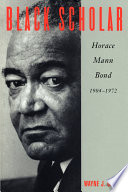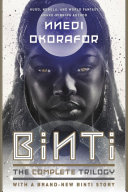Discover our guide with authors like Octavia Butler, who will transport you to another world, one page of science fiction at a time.
Immerse yourself in the exciting world of Octavia Butler, a literary pioneer who shattered boundaries and captured the hearts of science fiction fans across the world. Hugo and Nebula award recipient Octavia Butler wasn’t just beloved by her devoted science fiction readers, and she was also the first author in the genre to win a Genius Grant, officially known as a MacArthur Fellowship.
Her captivating Patternist series is much-loved among her fans. This series follows humanity as they’re split into three groups: Patternists (bred to have telepathic powers), Clayarks (mutated super-humans), and Mutes (standard humans).
In addition to writing widely acclaimed science fiction, Butler also taught creative writing students at Clarion University in Pennsylvania. If you’re a fan of Butler’s work and looking for more of the best science fiction authors, we’ve got you covered.
Must-Read Authors Like Octavia Butler
For more fantasy recommendations, you might also enjoy exploring best fantasy authors, authors like Brandon Sanderson, authors like George R.R. Martin, or discover our comprehensive guide to best fantasy authors.
1. Jewelle Gomez, 1948-
Author Jewelle Gomez is the self-described “foremother of Afrofuturism.” The author’s novel The Gilda Stories integrated a lesbian relationship, feminism, and vampire mythology into one story. The book follows an escaped enslaved person who takes 200 years to come of age and is praised for encompassing different groups on society’s sidelines. In addition to her novels, Gomez is also known for her literary and film criticism, writing for publications like The Village Voice and The Black Scholar.
Gomez’s work has gained renewed relevance in 2025 as discussions about representation and intersectionality in speculative fiction have become central to the genre’s evolution. Her pioneering approach to combining social justice themes with supernatural elements continues to influence contemporary writers exploring similar territory.
“Stop trying to make the perfect move; trust your instincts more. You’ve been through quite a bit in the past years. I’m sure you’re as good a student as you’ve always been.” “I can’t be a student for all my time!” “We are students for all our time if we’re lucky enough to know it.”
Jewelle L. Gómez, The Gilda Stories
2. Nnedi Okorafor, 1974 -
Nigerian-American author Nnedi Okorafor is the best-known science fiction writer for her Binti series. Her first book, Shadow Speaker, was widely celebrated and was nominated for an NAACP Image Award, the Andrew Norton Award, the Golden Duck Award, and the Essence Magazine Literary Award. The book follows a 14-year-old girl living in Nigeria in 2070, learning how to live in a world destroyed by nuclear war. The author is also known for her work with Marvel’s Black Panther comic, releasing her first installment, Black Panther: Long Live the King, in 2017.
Okorafor’s Africanfuturist perspective has become increasingly important in contemporary science fiction, offering non-Western visions of the future that challenge Eurocentric assumptions about technology and progress. Her work resonates strongly with 2025 readers seeking diverse voices and global perspectives in speculative fiction.
“It’s ok to care about what other people think, but you should give a little more weight to what you, yourself, think… The habit of thinking is the habit of gaining strength. You’re stronger than you believe.”
Nnedi Okorafor, Zahrah the Windseeker
3. Suzette Haden Elgin, 1936-2015
Suzette Haden Elgin was a linguist, author, and poet. She created the Science Fiction Poetry Association and is known for her contributions to developing language constructed for use in science fiction literature. As the first University of California at San Diego student to ever write two dissertations (one in English and one in the Navajo language), she was heralded for her work developing a language (Láadan) for her Native Tongue series. Much of the author’s works centered around her upbringing in the Ozark region, including The Ozark Trilogy: Twelve Fair Kingdoms, The Grand Jubilee, and Then There’ll Be Fireworks.
Elgin’s linguistic expertise and feminist science fiction have gained new appreciation in the era of AI language models and ongoing conversations about communication, power, and gender. Her exploration of how language shapes thought and society feels remarkably prescient for 2025 readers grappling with digital communication and artificial intelligence.
“Nazareth wasted no time in anything she did, and years of experience with her brood of nine had given her a firm way of bustling another person along that was impressive even to a professional nurse who did professional person-bustling.”
Suzette Haden Elgin, Native Tongue
4. Margaret Atwood, 1961 -
Margaret Atwood has become a household name in the United States and Canada, mainly in part to the T.V. series The Handmaid’s Tale, based on Atwood’s 1986 novel. While many critics and fans alike have asserted that Atwood’s works are both feminist and in the science fiction genre, the author disagrees. She’s expressed concern over some people’s negative opinion of the feminist movement and has expressed conservative views. Atwood categorizes her work as speculative fiction rather than science fiction, stating that she feels the events described in her books could happen in today’s world.
Atwood’s dystopian visions have proven remarkably prescient, with many readers in 2025 finding uncomfortable parallels between her fictional worlds and contemporary political and social developments. Her continued relevance speaks to the power of speculative fiction to illuminate present-day concerns through futuristic scenarios.
“We were the people who were not in the papers. We lived in the blank white spaces at the edges of print. It gave us more freedom. We lived in the gaps between the stories.”
Margaret Atwood, The Handmaid’s Tale
5. Tananarive Due, 1966 -
Author, educator, and film historian Tananarive Due are well-known for her African Immortals series, and her course at UCLA entitled The Sunken Place: Racism, Survival, and the Black Horror Aesthetic, based on Jordan Peele’s 2017 film Get Out. Many of Due’s works focus on the supernatural, including her debut novel, 1995’s The Between.
Her 2023 novel, The Reformatory, delves into both Black history and the supernatural genre, following protagonist Robert Stephens Jr. as he witnesses the injustice of the Jim Crow South for both the living and the dead.
Due’s blend of horror, history, and social commentary has become increasingly influential as readers seek fiction that grapples with systemic racism and historical trauma. Her work bridges the gap between genre fiction and serious social commentary, making complex historical issues accessible through compelling supernatural narratives.
“My mother used to say to me that she collected sorrows and put them in her pocket. Walking around with them that way, by and by, you just learn to carry them all a bit better, to stand up a bit straighter. That’s all life is, on this earth anyway.”
Tananarive Due, My Soul to Keep
6. Kim Harrison, 1966 -
Born Dawn Cook, author Kim Harrison is a science fiction and contemporary fantasy writer. Known in the industry as one of the best urban fiction writers in modern literature, Harrison is known for her number-one New York Times bestsellers from her Hollows series. The first book in the series, Dead Witch Walking, gave Harrison the literary success necessary to quit her day job and focus on writing full-time.
Her 2023 Hollows novel, Demons of Good and Evil, follows witch-demon Rachel Morgan as she navigates the streets of Cincinnati, working to protect citizens from paranormal activity. Fans of Harrison’s work love how she incorporates urban landscapes into her stories, nearly making settings into characters.
Harrison’s urban fantasy has remained popular as readers increasingly seek stories that ground supernatural elements in familiar, contemporary settings. Her long-running series demonstrates the appeal of character-driven narratives that explore themes of identity, belonging, and moral complexity within fantastical frameworks.
“That’s why I want you there, he said. You’re unpredictable, and that can be the difference between success and failure. Most people make decisions in anger, fear, love, or obligation. You make decisions to irritate people.”
Kim Harrison, For a Few Demons More
7. Ursula K. Le Guin, 1929 - 2018
Speculative fiction and science fiction author Ursula K. Le Guin enjoyed a 60-year career, writing over 100 short stories and twenty novels. While Le Guin mainly focused on paranormal novels, she also wrote children’s books, poetry, and translations. The author’s first short story, An Die Musik, was published in 1961 and was set in the fictional country of Orsinia, a world developed by Le Guin.
Much of the author’s following works went unnoticed until 1966 when she published her first novel, Rocannon’s World. Le Guin’s works are known for sending characters on an archetypal journey, where they both physically travel and undergo a period of self-realization.
Le Guin’s exploration of gender, politics, and philosophy through science fiction and fantasy continues to influence writers and readers. Her thoughtful approach to world-building and social criticism provides a template for contemporary authors seeking to use speculative fiction as a vehicle for examining complex social and ethical questions.
“The trouble is that we have a bad habit, encouraged by pedants and sophisticates, of considering happiness as something rather stupid. Only pain is intellectual, only evil interesting. This is the treason of the artist; a refusal to admit the banality of evil and the terrible boredom of pain.”
Ursula K. Le Guin, The Ones Who Walk Away from Omelas
8. N.K. Jemisin, 1972 -
Fantasy and science fiction writer N.K. Jemisin often weaves themes of cultural oppression. Like Butler, Jemisin was awarded a MacArthur Genius Grant. In addition to her novels, Jemisin is a well-known columnist, writing the Otherworldly column in the New York Times since 2016. Like many authors, Jemisin wanted to focus full-time on writing but wasn’t sure how to make the transition.
Following her appointment as a columnist for the Times, Jemisin created a Patreon campaign that eventually allowed her to secure the funding necessary to quit her day job as a psychologist.
Jemisin’s groundbreaking Broken Earth trilogy made her the first author to win three consecutive Hugo Awards for Best Novel, cementing her status as one of contemporary science fiction’s most important voices. Her work demonstrates how crowdfunding and direct reader support can enable authors to pursue ambitious literary projects while maintaining creative independence.
“In a child’s eyes, a mother is a goddess. She can be glorious or terrible, benevolent or filled with wrath, but she commands love either way. I am convinced that this is the greatest power in the universe.”
N.K. Jemisin, The Hundred Thousand Kingdoms
9. Emily St. John Mandel, 1979 -
Emily St. John Mandel is a novelist best known for Station Eleven and Sea of Tranquility, which was developed into an HBO Max series. President Barack Obama selected her 2020 novel, The Glass Hotel, as one of his year’s top books. The author is known for her speculative fiction and mystery genres, with some of her works edging into the science fiction world, covering topics such as time travel and the simulation hypothesis.
Mandel’s post-apocalyptic fiction gained particular resonance during and after the COVID-19 pandemic, as readers found parallels between her fictional pandemics and real-world experiences. Her focus on art, culture, and human connection in the face of societal collapse speaks to contemporary anxieties about fragility and resilience in modern civilization.
“No more Internet. No more social media, no more scrolling through litanies of dreams and nervous hopes and photographs of lunches, cries for help and expressions of contentment and relationship-status updates with heart icons whole or broken, plans to meet up later, pleas, complaints, desires, pictures of babies dressed as bears or peppers for Halloween. No more reading and commenting on the lives of others, and in so doing, feeling slightly less alone in the room. No more avatars.”
Emily St. John Mandel, Station Eleven
10. Sarah J. Maas, 1986 -
New York Times bestselling author Sarah J. Maas is a fantasy author who has sold over 12 million copies worldwide. The author got an early start, beginning the writing process for Throne of Glass when she was just sixteen. In the novel, Maas puts a spin on the story of Cinderella, asking readers to imagine if she was an assassin—not a servant. Capitalizing on the novel’s success, Maas wrote several prequels, which were eventually combined into The Assassin’s Blade.
While Maas writes primarily fantasy rather than science fiction, her massive popularity demonstrates the continued appetite for strong female protagonists and complex world-building. Her success also illustrates how young adult fiction has evolved to include more mature themes and sophisticated storytelling, appealing to readers across age groups.
“He thinks he’ll be remembered as the villain in the story. But I forgot to tell him that the villain is usually the person who locks up the maiden and throws away the key. He was the one who let me out.”
Sarah J. Maas, A Court of Mist and Fury





